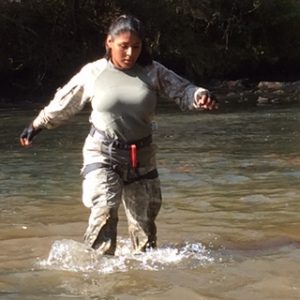What kind of agencies are out there to connect me, and my child’s skills, to a potential employer?
My name is Raeme Bosquez-Greer. I have been an Employment Specialist for the most challenging students for over 20 years. Challenging in my vocabulary means that they are harder to place in a competitive employment setting.

All states and cities have agencies similar to the Texas Workforce Commision, a department of rehabilitation and Alamo Area Council of Governments, which I’ll refer to as “The Agencies” for the remainder of this blog. These are the main agencies the parents of a 15+ year old student can go to for their first steps in seeking training, job developing and employment. This umbrella of agencies contracts third party providers to complete services. These providers, like myself, specialize in a variety of disabilities including Autism and Neurodevelopmental challenges. We are paid commission for the services that we provide.
The Agencies mentioned above will educate you regarding all the services they offer either themselves or through the 3rd party providers. They will give you a list of providers to select from. You call the providers on the list and interview them with questions specific to your son or daughters needs and you select the provider that you want to work with.
The agency will give you example questions but you can also ask your own based on what best fits your child.
Example questions you might want to focus on are:
- How long have you worked in the field of vocational rehabilitation?
- What is your success rate with students with Autism or related challenges?
- What are your credentials?
- Describe your most challenging case and did you have a positive outcome?
- What are the most common barriers to overcome for my son or daughter to become successfully employed?
For the state agencies, a student can begin the paperwork process as early as 15 years old. A vocational representative is required to be at the high school a minimum of once a week. I recommend you contact your child’s case manager frequently and ask to make an appointment with their appointed vocational representative. Start services early so that your child has time to learn the skills that they need and overcome any barriers by the time they graduate.
An example of my own daughter receiving services:
My daughter is now 17 and she started her vocational training at 15 years old. As a strong advocate for my daughter I asked the case manager repeatedly what services were available for my daughter off campus in the summer.
A representative came out to the school and we discussed volunteering in the community to get her feet wet and to begin to understand the expectations of a job out in the real world. My beautiful adopted daughter is a survivor of shaken baby syndrome and has ADD, Attention Deficit Disorder. At times, she would wander off and get lost. I made sure that when she went to work experience sites she had a skilled trainer near where she was getting her training so that she was well supervised.
A skills trainer observes the student, offers support and role plays multiple scenarios to familiarize the student with real life work expectations.

My daughter chose animals to work with. In the summer, she was able to work at a farm with horses, pigs, goats, and rabbits. She may have actually done more petting than working but it was a start.
The second site she chose was a pet store. She could brush the animals and talk to potential animal owners regarding the pets.
As she has grown a bit older and matured she has joined ROTC at her high school. Due to ROTC she has decided that her first vocational goal is to enlist in the Coast Guard and her second choice is becoming a dog trainer for therapy dogs. She now has experience in both areas away from her parents and on her own.
As a parent, going through all these hoops can be agonizing, but once you see your child flourish you will know that the results are worth all of the work.
There are agencies that provide services outside of the state agencies. I have also worked with private agencies such as The ARC of San Antonio.
This population often has the most severe challenges and most students participate in an enclave. An enclave is a safe environment where students are in a room doing repetitive, piecemeal work and getting paid less then minimum wage. This work can be something like dipping your hands in grease and putting washers on screws.
Many parents feel that this kind of work is demeaning and their child is capable of more but in these environments the child is safe and not just sitting at home watching TV, so there are advantages.
In summary, I recommend that you begin services as early as possible to allow your child to get as much assistance as possible in overcoming barriers and learning about the work of work.
Talk to your child’s case manager and find out who the local vocational representative is and make an appointment.
Best of Luck!
Raeme
Southwind Fields Program Director
raeme.bosquez-greer@southwindfields.com


